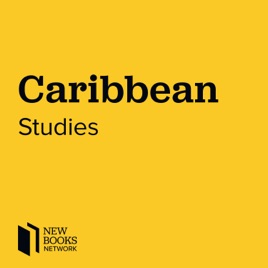
Advertise on podcast: New Books in Caribbean Studies
Rating
5 from
Country
This podcast has
359 episodes
Language
Publisher
Explicit
No
Date created
2016/09/08
Average duration
61 min.
Release period
5 days
Description
Interviews with scholars of the Caribbean about their new books. Support our show by becoming a premium member! https://newbooksnetwork.supportingcast.fm/caribbean-studies
Podcast episodes
Check latest episodes from New Books in Caribbean Studies podcast
Ariel Mae Lambe, "No Barrier Can Contain It: Cuban Antifascism and the Spanish Civil War" (UNC Press, 2019)
2024/02/25
Ariel Mae Lambe’s new book No Barrier Can Contain It: Cuban Antifascism and the Spanish Civil War (University of North Carolina Press, 2019) is a history of transnational Cuban activists who mobilized in the mid-1930s to fight fascism both in Cuba and beyond. A wide variety of civic and political groups, including Communists, anarchists, Freemasons, and Afro-Cubans, mobilized to support the Spanish Republican cause, which they connected to their efforts at home to fight persisting colonial structures and strongman politics. Lambe emphasizes the human side of antifascist activism through biographical studies of both well-known and overlooked Cuban figures. Her book shows that the 1930s, often dismissed as an apolitical period in Cuban history, were in fact characterized by vibrant efforts to raise funds, send combat troops, and provide other kinds of aid to Spanish Republicans. Lambe argues that important changes on the island in 1940 – the holding of free elections and the promulgation of a progressive constitution – suggest that Cuban antifascist efforts, though unable to turn the tide of the Spanish Civil War, did have an impact on Cuban domestic politics. In the interview, Lambe reflects on how her work is relevant to the Antifa movement of today.
Rachel Grace Newman is Lecturer in the History of the Global South at Smith College. She has a Ph.D. in History from Columbia University, and she writes about elite migration, education, transnationalism, and youth in twentieth-century Mexico. She is also the author of a book on a binational program for Mexican migrant children. She is on Twitter (@rachelgnew).
Learn more about your ad choices. Visit megaphone.fm/adchoices
Support our show by becoming a premium member! https://newbooksnetwork.supportingcast.fm/caribbean-studies
more
Imani D. Owens, "Turn the World Upside Down: Empire and Unruly Forms of Black Folk Culture in the U.S. and Caribbean" (Columbia UP, 2023)
2024/02/23
In the first half of the twentieth century, Black hemispheric culture grappled with the legacies of colonialism, U.S. empire, and Jim Crow. As writers and performers sought to convey the terror and the beauty of Black life under oppressive conditions, they increasingly turned to the labor, movement, speech, sound, and ritual of everyday “folk.” Many critics have perceived these representations of folk culture as efforts to reclaim an authentic past. Imani D. Owens recasts Black creators’ relationship to folk culture, emphasizing their formal and stylistic innovations and experiments in self-invention that reach beyond the local to the world.
Turn the World Upside Down: Empire and Unruly Forms of Black Folk Culture in the U.S. and Caribbean (Columbia UP, 2023) explores how Black writers and performers reimagined folk forms through the lens of the unruly―that which cannot be easily governed, disciplined, or managed. Drawing on a transnational and multilingual archive―from Harlem to Havana, from the Panama Canal Zone to Port-au-Prince―Owens considers the short stories of Eric Walrond and Jean Toomer; the ethnographies of Zora Neale Hurston and Jean Price-Mars; the recited poetry of Langston Hughes, Nicolás Guillén, and Eusebia Cosme; and the essays, dance work, and radio plays of Sylvia Wynter. Owens shows how these figures depict folk culture―and Blackness itself―as a site of disruption, ambiguity, and flux. Their works reveal how Black people contribute to the stirrings of modernity while being excluded from its promises. Ultimately, these works do not seek to render folk culture more knowable or worthy of assimilation, but instead provide new forms of radical world-making.
Omari Averette-Phillips is a doctoral student in the Department of History at UC Davis. He can be reached at omariaverette@gmail.com.
Learn more about your ad choices. Visit megaphone.fm/adchoices
Support our show by becoming a premium member! https://newbooksnetwork.supportingcast.fm/caribbean-studies
more
Mirelsie Velazquez, "Puerto Rican Chicago: Schooling the City, 1940-1977" (U Illinois Press, 2022)
2024/02/17
The postwar migration of Puerto Rican men and women to Chicago brought thousands of their children into city schools. These children's classroom experience continued the colonial project begun in their homeland, where American ideologies had dominated Puerto Rican education since the island became a US territory. Mirelsie Velázquez tells how Chicago's Puerto Ricans pursued their educational needs in a society that constantly reminded them of their status as second-class citizens. Communities organized a media culture that addressed their concerns while creating and affirming Puerto Rican identities. Education also offered women the only venue to exercise power, and they parlayed their positions to take lead roles in activist and political circles. In time, a politicized Puerto Rican community gave voice to a previously silenced group--and highlighted that colonialism does not end when immigrants live among their colonizers.
A perceptive look at big-city community building, Puerto Rican Chicago: Schooling the City, 1940-1977 (U Illinois Press, 2022) reveals the links between justice in education and a people's claim to space in their new home.
Mirelsie Velázquez, PhD, is an associate professor of Latina/o Studies. As an interdisciplinary scholar, her work centers history of education, women's history, Puerto Rican studies, gender and sexuality, and teacher education.
Max Jacobs is a PhD student in education at Rutgers University. He currently sits on the Graduate Student Council for the History of Education Society.
Learn more about your ad choices. Visit megaphone.fm/adchoices
Support our show by becoming a premium member! https://newbooksnetwork.supportingcast.fm/caribbean-studies
more
Pablo Alonso González, "Cuban Cultural Heritage: A Rebel Past for a Revolutionary Nation" (UP of Florida, 2018)
2024/02/16
Cuban Cultural Heritage: A Rebel Past for a Revolutionary Nation (UP of Florida, 2018) explores the role that cultural heritage and museums played in the construction of a national identity in postcolonial Cuba. Starting with independence from Spain in 1898 and moving through Cuban-American rapprochement in 2014, Pablo Alonso González illustrates how political and ideological shifts have influenced ideas about heritage and how, in turn, heritage has been used by different social actors to reiterate their status, spread new ideologies, and consolidate political regimes. Unveiling the connections between heritage, power, and ideology, Alonso González delves into the intricacies of Cuban history, covering key issues such as Cuba's cultural and political relationships with Spain, the United States, the Soviet Union, and so-called Third World countries; the complexities of Cuba's status as a postcolonial state; and the potential future paths of the Revolution in the years to come. This volume offers a detailed look at the function and place of cultural heritage under socialist states.
Pablo Alonso González is a Senior Researcher at the Spanish National Research Council (IPNA-CSIC). He is the author of several books, including Cultural Parks and National Heritage Areas: Assembling Cultural Heritage, Development and Spatial Planning.
Katie Coldiron is the Outreach Program Manager for the Digital Library of the Caribbean (dLOC) and PhD student in History at Florida International University.
Learn more about your ad choices. Visit megaphone.fm/adchoices
Support our show by becoming a premium member! https://newbooksnetwork.supportingcast.fm/caribbean-studies
more
Marisol LeBrón, "Policing Life and Death: Race, Violence, and Resistance in Puerto Rico" (U California Press, 2019)
2024/02/14
Marisol LeBrón’s new book, Policing Life and Death: Race, Violence, and Resistance in Puerto Rico (University of California Press, 2019), examines the rise of and resistance to punitive governance (tough on crime policing policies) in Puerto Rico from the 1990s to the present. As in the United States, LeBrón shows how increased investment in policing did not respond to a spike in crime. It actually emerged as a strategy to shore up the local political and economic establishment mired in the crisis of the archipelago’s postwar colonial development policy “Operation Bootstrap,” spiking unemployment, lack of U.S. investment, and a growing informal economy which included the drug trade. Puerto Rican elites hoped to reinvent themselves as models for tough on crime policing and gatekeepers for the United States to Latin America. Beginning with the mano dura contra el crimen (iron fist against crime) policy of commonwealth Governor Pedro Rosselló in 1993, police increasingly targeted lower income, predominantly Black public housing complexes (caseríos) as sources of criminality and lawlessness. Using Justice Department reports, social media research, newspapers, and oral interviews to create a “police archive,” LeBrón demonstrates that while police killings, brutality, surveillance, and harassment were hallmarks of mano dura, the policy also reinvented popular understandings of the “who” and “where” of crime that endure to the present. In doing so, she shows how presumptions about race, class, gender, and sexuality linked to certain places (public housing, sex work neighborhoods, schools, and universities) created notions of victims and criminals who “deserved” life or death. The book’s second half explores critiques of and resistance to punitive governance by looking at underground rap, university student activism, social media debates, and non-punitive anti-violence activism. These case studies show the growing resistance to policing as policy instead of social investment, but also the tenacity of the discourses of criminality activists must wrestle with today.
LeBrón is also the author of the forthcoming Aftershocks of Disaster: Puerto Rico Before and After the Storm (Haymarket Books) and the co-creator of the Puerto Rico Syllabus.
Jesse Zarley will be an assistant professor of history at Saint Joseph’s College on Long Island, where in Fall 2019 he will be teaching Latin American, Caribbean, and World History. His research interests include borderlands, ethnohistory, race, and transnationalism during Latin America’s Age of Revolution, particularly in Chile and Argentina. He is the author of a recent article on Mapuche leaders and Chile’s independence wars. You can follow him on Twitter.
Learn more about your ad choices. Visit megaphone.fm/adchoices
Support our show by becoming a premium member! https://newbooksnetwork.supportingcast.fm/caribbean-studies
more
The Culture Trap, with Sociologist Derron Wallace (EF, JP)
2024/02/01
In this episode, Elizabeth and John talk with Derron Wallace, sociologist of education and Brandeis colleague, about his new book The Culture Trap, which explores "ethnic expectations" for Caribbean schoolchildren in New York and London. His work starts with the basic puzzle that while black Caribbean schoolchildren in New York are often considered as "high-achieving," in London, they have been, conversely thought to be "chronically underachieving." Yet in each case the main cause -- of high achievement in New York and low achievement in London -- is said to be cultural. We discuss the concept of "ethnic expectations" and the ways it can have negative effects even when the expectations themselves are positive, and the dense intertwining of race, class, nation, colonial status, and gender, and the travels of the concept of culture in the 20th and 21st centuries.
Mentioned in the episode:
The Commission on Race and Ethnic Disparities Report [the Sewell Report] (2021)
The Moynihan Report (1965)
Georg Lukacs, "Reification and the Consciousness of the Proletariat" (1923)
Diane Reay, "What Would a Socially Just Educational System Look Like?" (2012)
Bernard Coard, How the Caribbean Child is made Educationally Subnormal in the British School System
Steve McQueen, Small Axe, "Education," (2020)
Bernardine Evaristo, Girl, Woman, Other (2019)
B. Brian Forster, I Don't Like the Blues: Race, Place, and the Backbeat of Black Life (2020)
Michel-Rolph Trouillot, "Adieu Culture: A New Duty Arises" (2003)
David Simon's TV show The Wire (and also Lean on Me, and To Sir, with Love and with major props from Derron, Top Boy)
Stuart Hall, The Fateful Triangle (1994)
Listen and Read
Learn more about your ad choices. Visit megaphone.fm/adchoices
Support our show by becoming a premium member! https://newbooksnetwork.supportingcast.fm/caribbean-studies
more
Nicholas Radburn, "Traders in Men: Merchants and the Transformation of the Transatlantic Slave Trade" (Yale UP, 2023)
2024/01/24
During the eighteenth century, Britain’s slave trade exploded in size. Formerly a small and geographically constricted business, the trade had, by the eve of the American Revolution, grown into an Atlantic-wide system through which fifty thousand men, women, and children were enslaved every year.
In Traders in Men: Merchants and the Transformation of the Transatlantic Slave Trade (Yale UP, 2023), Nicholas Radburn explains how thousands of slaving merchants in Africa, Britain, and the British Americas collectively created this cancerous system by devising highly efficient, but also violent, new business methods. African brokers developed commercial techniques that facilitated the enslavement and sale of millions of people. Britons invented shipping methods that quelled enslaved people’s constant resistance on the Middle Passage. And American slave traders formulated brutal techniques through which shiploads of people could be quickly sold to a variety of colonial buyers. Truly Atlantic-wide in its vision, this study shows how the slave trade became one of the most important phenomena in world history and dragged millions of people into the trade’s terrible vortex.
Katrina Anderson is a doctoral candidate at the University of Delaware.
Learn more about your ad choices. Visit megaphone.fm/adchoices
Support our show by becoming a premium member! https://newbooksnetwork.supportingcast.fm/caribbean-studies
more
Chelsea Schields, "Offshore Attachments: Oil and Intimacy in the Caribbean" (U California Press, 2023)
2024/01/21
Chelsea Schields's book Offshore Attachments: Oil and Intimacy in the Caribbean (U California Press, 2023) reveals how the contested management of sex and race transformed the Caribbean into a crucial site in the global oil economy. By the mid-twentieth century, the Dutch islands of Curaçao and Aruba housed the world's largest oil refineries. To bolster this massive industrial experiment, oil corporations and political authorities offshored intimacy, circumventing laws regulating sex, reproduction, and the family in a bid to maximize profits and turn Caribbean subjects into citizens.
Historian Chelsea Schields demonstrates how Caribbean people both embraced and challenged efforts to alter intimate behavior in service to the energy economy. Moving from Caribbean oil towns to European metropolises and examining such issues as sex work, contraception, kinship, and the constitution of desire, Schields narrates a surprising story of how racialized concern with sex shaped hydrocarbon industries as the age of oil met the end of empire.
Chelsea Schields is Associate Professor of History at the University of California, Irvine.
Katie Coldiron is the Outreach Program Manager for the Digital Library of the Caribbean (dLOC) and PhD student in History at Florida International University.
Learn more about your ad choices. Visit megaphone.fm/adchoices
Support our show by becoming a premium member! https://newbooksnetwork.supportingcast.fm/caribbean-studies
more
Gustav Cederlof, "The Low-Carbon Contradiction: Energy Transition, Geopolitics, and the Infrastructural State in Cuba" (U California Press, 2023)
2024/01/15
In the pursuit of socialism, Cuba became Latin America’s most oil-dependent economy. When the Soviet Union collapsed, the country lost 86 percent of its crude oil supplies, resulting in a severe energy crisis. In the face of this shock, Cuba started to develop a low-carbon economy based on economic and social reform rather than high-tech innovation.
The Low-Carbon Contradiction: Energy Transition, Geopolitics, and the Infrastructural State in Cuba (University of California Press, 2023) by Dr. Gustav Cederlöf examines this period of rapid low-carbon energy transition, which many have described as a “Cuban miracle” or even a real-life case of successful “degrowth.” Working with original research from inside households, workplaces, universities, and government offices, Dr. Cederlöf retells the history of the Cuban Revolution as one of profound environmental and infrastructural change. In doing so, he opens up new questions about energy transitions, their politics, and the conditions of a socially just low-carbon future. The Cuban experience shows how a society can transform itself while rapidly cutting carbon emissions in the search for sustainability.
This interview was conducted by Dr. Miranda Melcher whose forthcoming book focuses on post-conflict military integration, understanding treaty negotiation and implementation in civil war contexts, with qualitative analysis of the Angolan and Mozambican civil wars.
Learn more about your ad choices. Visit megaphone.fm/adchoices
Support our show by becoming a premium member! https://newbooksnetwork.supportingcast.fm/caribbean-studies
more
Sandro R. Barros et al., "The Dissidence of Reinaldo Arenas: Queering Literature, Politics, and the Activist Curriculum" (U Florida Press, 2022)
2024/01/09
Focusing on the didactic nature of the work of Reinaldo Arenas, The Dissidence of Reinaldo Arenas: Queering Literature, Politics, and the Activist Curriculum (U Florida Press, 2022) demonstrates the Cuban writer’s influence as public pedagogue, mentor, and social activist whose teaching on resistance to normative ideologies resonates in societies past, present, and future. Through a multidisciplinary approach bridging educational, historiographic, and literary perspectives, The Dissidence of Reinaldo Arenas illuminates how Arenas’s work remains a cutting-edge source of inspiration for today’s audiences, particularly LGBTQI readers. It shows how Arenas’s aesthetics contain powerful insights for exploring dissensus whether in the context of Cuba, broader Pan-American and Latinx-U.S. queer movements of social justice, or transnational citizenship politics. Carefully dissecting Arenas’s themes against the backdrop of his political activity, this book presents the writer’s poetry, novels, and plays as a curriculum of dissidence that provides models for socially engaged intellectual activism.
Sandro R. Barros, assistant professor in the Curriculum, Instruction, and Teacher Education program at Michigan State University, is the author of Competing Truths in Contemporary Latin American Literature: Narrating Otherness, Marginality, and the Politics of Representation.
Rafael Ocasio is Charles A. Dana Professor of Spanish at Agnes Scott College. He is the author of A Gay Cuban Activist in Exile: Reinaldo Arenas and Cuba’s Political and Sexual Outlaw: Reinaldo Arenas.
Angela L. Willis is professor of Hispanic studies and Latin American studies at Davidson College.
Katie Coldiron is the Outreach Program Manager for the Digital Library of the Caribbean (dLOC) and PhD student in History at Florida International University.
Learn more about your ad choices. Visit megaphone.fm/adchoices
Support our show by becoming a premium member! https://newbooksnetwork.supportingcast.fm/caribbean-studies
more
Marcy Norton, "The Tame and the Wild: People and Animals after 1492" (Harvard UP, 2024)
2024/01/04
In The Tame and the Wild: People and Animals after 1492 (Harvard University Press, 2024), Dr. Marcy Norton offers a dramatic new interpretation of the encounter between Europe and the Americas that reveals the crucial role of animals in the shaping of the modern world.
When the men and women of the island of Guanahani first made contact with Christopher Columbus and his crew on October 12, 1492, the cultural differences between the two groups were vaster than the oceans that had separated them. There is perhaps no better demonstration than the divide in their respective ways of relating to animals. In this book, Dr. Norton tells a new history of the colonisation of the Americas, one that places wildlife and livestock at the centre of the story. She reveals that the encounters between European and Native American beliefs about animal life transformed societies on both sides of the Atlantic.
Europeans’ strategies and motives for conquest were inseparable from the horses that carried them in military campaigns and the dogs they deployed to terrorise Native peoples. Even more crucial were the sheep, cattle, pigs, and chickens whose flesh became food and whose skins became valuable commodities. Yet as central as the domestication of animals was to European plans in the Americas, Native peoples’ own practices around animals proved just as crucial in shaping the world after 1492. Cultures throughout the Caribbean, Amazonia, and Mexico were deeply invested in familiarisation: the practice of capturing wild animals—not only parrots and monkeys but even tapir, deer, and manatee—and turning some of them into “companion species.” These taming practices not only influenced the way Indigenous people responded to human and nonhuman intruders but also transformed European culture itself, paving the way for both zoological science and the modern pet.
This interview was conducted by Dr. Miranda Melcher whose forthcoming book focuses on post-conflict military integration, understanding treaty negotiation and implementation in civil war contexts, with qualitative analysis of the Angolan and Mozambican civil wars.
Learn more about your ad choices. Visit megaphone.fm/adchoices
Support our show by becoming a premium member! https://newbooksnetwork.supportingcast.fm/caribbean-studies
more
Katherine M. Marino, "Feminism for the Americas: The Making of an International Human Rights Movement" (UNC Press, 2019)
2024/01/03
Katherine M. Marino is an assistant professor of history at the University of California, Los Angeles. Feminism for the Americas: The Making of an International Human Rights Movement (University of North Carolina Press, 2019) follows the many Latin American and Caribbean women in the first half of the century who not only championed feminism for the continent but also contributed to defining the meaning of international human rights. They drove a transnational movement for women’s suffrage that included equal work and maternity rights and the self-determination of their nations rejecting U.S. imperialism. Marino draws attention to the enduring contributions of women such as the Brazilian Bertha Lutz, Cuban Clara Gonzales and Chilean Marta Vergara who have yet to receive a significant place in human rights history. The work of Latin American and Caribbean feminist was impeded by internal race and class conflict, insufficient funding, lack of government support and by imperial assumptions of U.S. feminists. Their tenacious efforts through multiple organizations, gatherings, and personal networks led to the inclusion of women’s rights in the global human rights framework and assured that economic and social rights would not be sidelined. The book also illuminates the ideological differences that have plagued the global feminist movement and adds a significant piece to the history of human rights.
Lilian Calles Barger, www.lilianbarger.com, is a cultural, intellectual and gender historian. Her most recent book is entitled The World Come of Age: An Intellectual History of Liberation Theology (Oxford University Press, 2018). Her current research project is on the intellectual history of feminism seen through the emblematic life and work of Simone de Beauvoir.
Learn more about your ad choices. Visit megaphone.fm/adchoices
Support our show by becoming a premium member! https://newbooksnetwork.supportingcast.fm/caribbean-studies
more
Podcast reviews
Read New Books in Caribbean Studies podcast reviews
LAexplorer
2023/04/09
A Podcast Gem:
I teach policy courses at a university and found this podcast by accident. It’s incredibly well moderated and produced, with exceptional guests. Keep ...
more
Mas Reg
2019/11/25
Great Personal Study
There are so many interesting facts in this podcast. From Ruma Chopra to Darwin I have personally learned many historical moments not discussed in sch...
more
Podcast sponsorship advertising
Start advertising on New Books in Caribbean Studies & sponsor relevant audience podcasts
You may also like these society & culture Podcasts
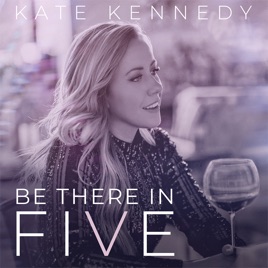
4.9
6759
300
Be There in Five
Kate Kennedy

4.5
908
895
Amateur Traveler Travel Podcast
Chris Christensen
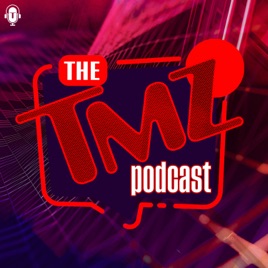
3.6
352
535
The TMZ Podcast
TMZ

4.4
3279
202
Jeff Lewis Has Issues
SiriusXM
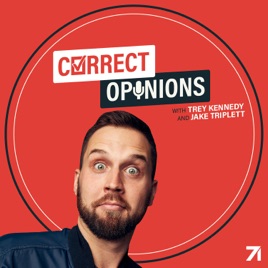
4.9
5768
232
Correct Opinions with Trey Kennedy and Jake Triplett
Trey Kennedy

4.8
845
289
BIG FACTS with Big Bank & DJ Scream
The Black Effect and iHeartPodcasts

4.7
92
241
The Ultimate Intimacy Podcast
Nick and Amy with The Ultimate Intimacy App

4.8
7035
25
The Steve Austin Show
PodcastOne

4.2
672
40
The Survivalist Prepper Podcast
The Survivalist Prepper Website and Prepping Podcast
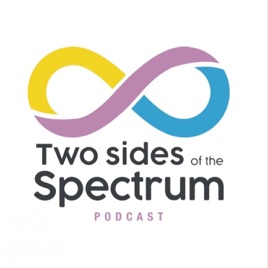
4.7
204
88
Two Sides of the Spectrum
Meg Ferrell



